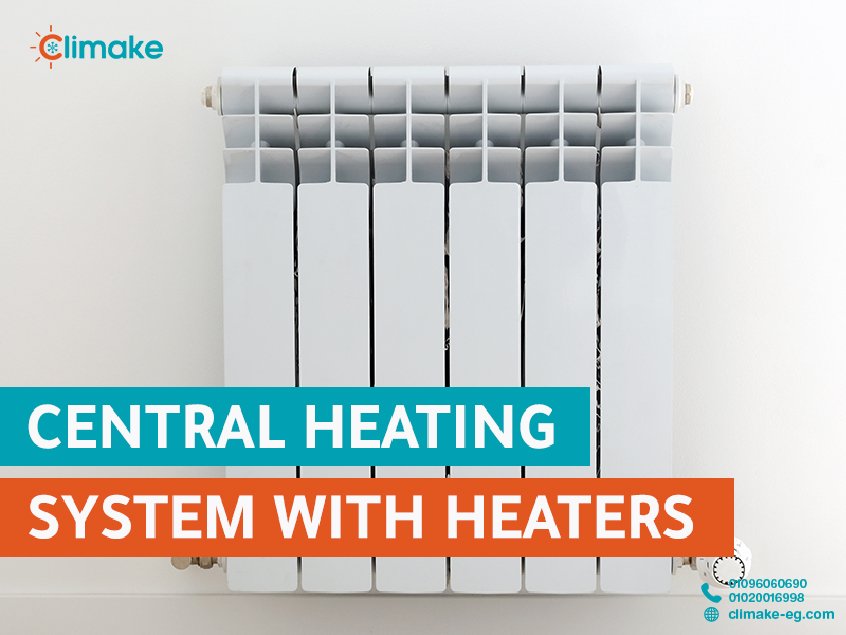If you’ve been wondering how underfloor heating works, you’re not alone. This modern heating solution has become one of the most popular choices in luxury and energy-efficient homes—especially for people who want comfort without bulky radiators. In Egypt, more homeowners are turning to underfloor heating for a cleaner, more stylish alternative. And when it comes to the highest quality installation, Climec stands out as a top provider.
Why Underfloor Heating Is Growing in Popularity
Underfloor heating provides warm, cozy floors that gently heat the room from the ground up. Instead of relying on heaters that dry the air or create uneven temperatures, it delivers consistent warmth in every corner of the space.
Benefits of Using Underfloor Heating in Modern Homes
- No visible units
- Silent operation
- Lower energy consumption
- Enhanced comfort
What Is Underfloor Heating?
Underfloor heating is a system that distributes heat beneath the floor’s surface, warming the entire room evenly. It replaces the need for traditional heaters and radiators, making it ideal for modern interior designs.
Types of Underfloor Heating Systems
There are two main types:
- Hydronic (water-based)
- Electric heating cables
Each has its own benefits depending on home layout and energy preference.
How Does Underfloor Heating Work?
The system works by evenly distributing heat beneath the floor, allowing warmth to rise naturally into the room—a process known as radiant heat.
Hydronic (Water-Based) Underfloor Heating
Heated water flows through pipes installed under the floor, powered by a boiler.
Electric Underfloor Heating
Uses electric heating wires or mats to warm the floor surface.
Heat Distribution Process
The heat spreads upward, creating uniform warmth without cold spots.
Temperature Control and Thermostats
Modern thermostats allow homeowners to set precise temperatures, improving comfort and energy savings.
Hydronic Underfloor Heating Explained
Water-based systems are the most efficient and the preferred choice for larger homes or villas.
Components of a Hydronic System
- Boiler
- PEX pipes
- Manifold
- Pump
- Thermostat
How the Boiler Works
The boiler heats water and circulates it through the network of pipes under the floor, ensuring consistent and reliable warmth.
Role of Pipes and Manifolds
The manifold distributes warm water to each room independently, allowing zoning and temperature control.
Advantages of Underfloor Heating
Even Heat Distribution
The entire room feels warm, not just the area near a heater.
Energy Efficiency
Underfloor heating uses lower temperatures to heat the room, reducing energy bills.
Comfort and Safety
No exposed elements, no sharp edges, and no dust circulation—ideal for families.
Aesthetic Benefits
You get more space, clean walls, and total design freedom.
Why Underfloor Heating Is Ideal for Homes in Egypt
Egypt’s climate makes it perfect for underfloor heating. Winters can be cold indoors, and underfloor systems provide steady warmth without consuming excessive electricity.
Energy-Saving Advantages in Egyptian Homes
Homes with good insulation enjoy even greater efficiency, making underfloor heating a smart long-term investment.
Why Climec Is the Best Choice for Underfloor Heating in Egypt
As one of the top engineering companies in the Egyptian heating market, Climec offers unmatched quality and expertise.
Technical Expertise
Highly trained engineers ensure precise design and installation.
High-Quality Materials
Climec uses global-standard components for durability and efficiency.
Professional Installation
Their installation process follows strict engineering guidelines for optimal performance.
Long-Term Support and Maintenance
Climec provides after-sales service, yearly maintenance, and 24/7 support.
Installation Process of Underfloor Heating by Climec
Step 1: Site Inspection
Experts evaluate your home’s structure and insulation.
Step 2: System Design
Climec customizes the layout based on room size, flooring, and heating needs.
Step 3: Installation
Pipes or heating cables are installed beneath the floor layers.
Step 4: Testing and Handover
The system is fully tested to ensure perfect heat distribution before handover.
Cost of Underfloor Heating in Egypt
The price depends on:
- Home size
- System type (water or electric)
- Flooring type
- Installation complexity
Why Choosing Climec Offers High Value
While not always the cheapest, Climec provides the highest return through durability, efficiency, and professional support.
Common Misconceptions About Underfloor Heating
Myth: Underfloor heating is slow
Modern systems heat up quickly, especially with proper insulation.
Myth: It consumes too much electricity
Hydronic systems are incredibly energy-efficient and cost-saving long-term.
Tips for Maintaining an Underfloor Heating System
Regular Maintenance
Annual checks ensure the system runs smoothly.
Avoiding System Overload
Use proper thermostats and avoid tampering with settings.
Checking Thermostats
Make sure thermostats are calibrated and functioning correctly.
Understanding how underfloor heating works helps you appreciate why it’s one of the most efficient and comfortable heating solutions available today. With its even heat distribution, energy efficiency, and long-lasting performance, underfloor heating is the ideal choice for modern homes in Egypt. And with Climec leading the market in professional installation and support, you can expect a system that performs flawlessly for years.
FAQs
- Is underfloor heating better than traditional radiators?
Yes, it provides more even heat, greater efficiency, and cleaner aesthetics. - How long does underfloor heating last?
Hydronic systems can last 30–50 years with proper maintenance. - Can underfloor heating work under tiles and marble?
Absolutely—it works perfectly under tiles, marble, laminate, and wood. - Is underfloor heating expensive to run?
No, hydronic systems are very energy-efficient and cost-saving long-term. - Can Climec install underfloor heating in old buildings?
Yes, Climec designs custom solutions suitable for both new and existing homes.


